In today's fast-paced digital world, media literacy is more important than ever for fostering informed and engaged citizens. With the overwhelming amount of information flooding our screens, it's crucial that individuals develop the skills to critically analyze the content they consume. By implementing media literacy programs in schools and communities, we can empower people to navigate the complexities of the media landscape effectively. So, let's explore the benefits and strategies for enhancing media literacyâread on to discover how we can make a meaningful impact together!
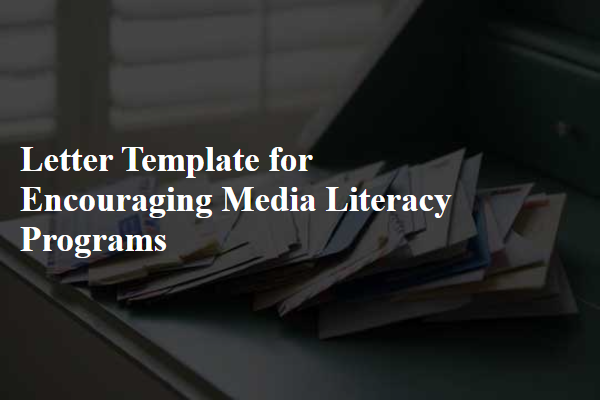
Emphasizing the importance of critical thinking skills.
Media literacy programs are essential for fostering critical thinking skills in today's digital landscape, where misinformation and biased narratives proliferate across platforms like social media and news outlets. These programs, offered in schools such as those in California where initiatives have reached over 200 districts, empower students to analyze various sources of information, recognizing the difference between factual reporting and opinion. Participants learn to discern media influence, enhancing their ability to make informed decisions about what to believe and share, protecting them from scams and false claims. Engaging with content critically not only improves academic performance but also cultivates responsible citizenship in a democratic society. Expanding these programs can lead to a more informed public, capable of navigating the complexities of modern media.
Highlighting the impact of misinformation on society.
Misinformation significantly impacts society, influencing public opinion, decision-making, and social cohesion. In recent events, false claims surrounding health crises, like the COVID-19 pandemic (emerging in late 2019), have sowed confusion, leading to vaccine hesitancy and public distrust. Educational institutions, including high schools and universities, have increasingly recognized the urgent need to implement media literacy programs aimed at empowering individuals with critical thinking skills. Programs focus on identifying credible sources, analyzing information contextually, and understanding the role of algorithms in information dissemination on social media platforms. As misinformation continues to proliferate, fostering a media-literate populace becomes essential in promoting informed citizenship, protecting democratic values, and cultivating a more resilient society.
Promoting digital literacy and online safety.
Media literacy programs play a crucial role in enhancing digital literacy and ensuring online safety, particularly for younger audiences in schools and communities. Increasing access to technology, such as computers, tablets, and smartphones, requires curricula that emphasize critical thinking skills when consuming information from digital platforms like social media and news websites. Statistics show that nearly 70% of teenagers encounter misinformation regularly, making it essential to teach skills to discern credible sources from unreliable ones. Engaging workshops and community events focused on topics such as identifying fake news, recognizing online bullying, and protecting personal data can empower individuals to navigate the digital world safely. Furthermore, partnerships with local libraries, universities, and non-profit organizations can improve outreach and resources available to families, fostering a culture of informed digital citizenship in cities like Chicago, New York, and San Francisco.
Encouraging collaboration between educators and community leaders.
Media literacy programs enhance critical thinking skills among students, particularly in today's digital age where false information can spread rapidly. Partnerships between educators, such as high school teachers and university professors, alongside community leaders like local library directors and youth organization coordinators, can create robust initiatives. These collaborative efforts can host workshops that empower students with the ability to discern credible sources, recognize bias, and analyze media messages critically. By organizing local events in community centers or schools, participants can engage in discussions about current events, social media trends, and digital citizenship, reinforcing ethical information sharing and responsible media consumption. Such programs not only cultivate informed citizens but also strengthen community ties, fostering a culture of open dialogue and shared knowledge.
Providing resources and support for program implementation.
Media literacy programs empower individuals to critically analyze media content, encompassing various platforms like television, social media, and news outlets. These initiatives, vital for youth education and community engagement, typically include workshops, curriculum development, and resource materials that promote critical thinking and informed decision-making. For instance, organizations such as Common Sense Media provide comprehensive guidelines and toolkits to assist educators in implementing effective media literacy strategies in schools across the United States. Furthermore, studies conducted by the Media Literacy Now organization illustrate that enhanced media literacy skills can significantly reduce the impact of misinformation, particularly among adolescents aged 12 to 18. By investing in resources and support, communities can foster a more informed electorate and resilient individuals, able to navigate the complexities of the modern media landscape.
Letter Template For Encouraging Media Literacy Programs Samples
Letter template of recommendation for enhancing media literacy curriculum
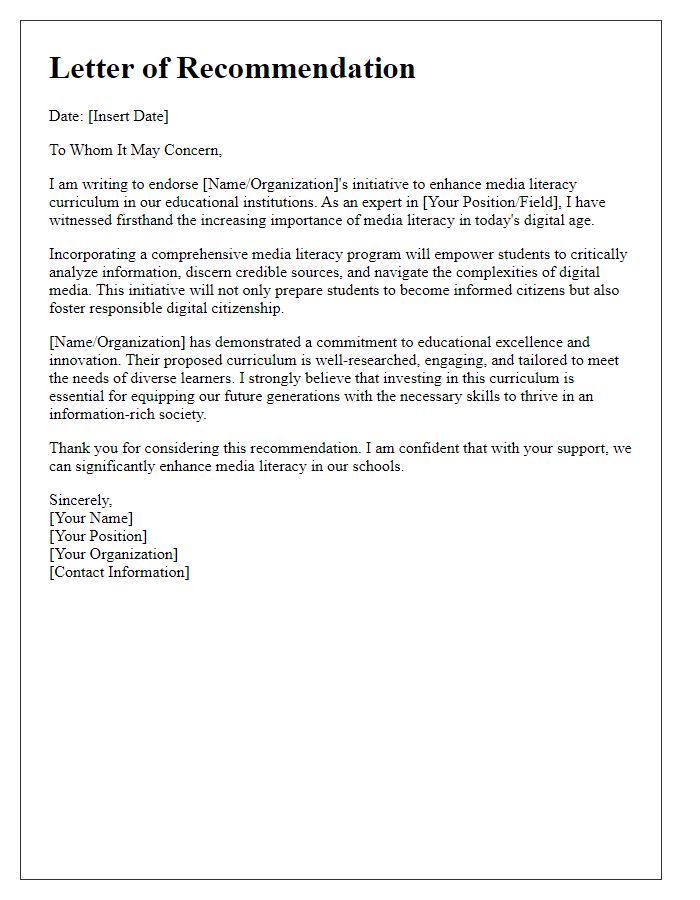
Letter template of collaboration proposal for media literacy organizations
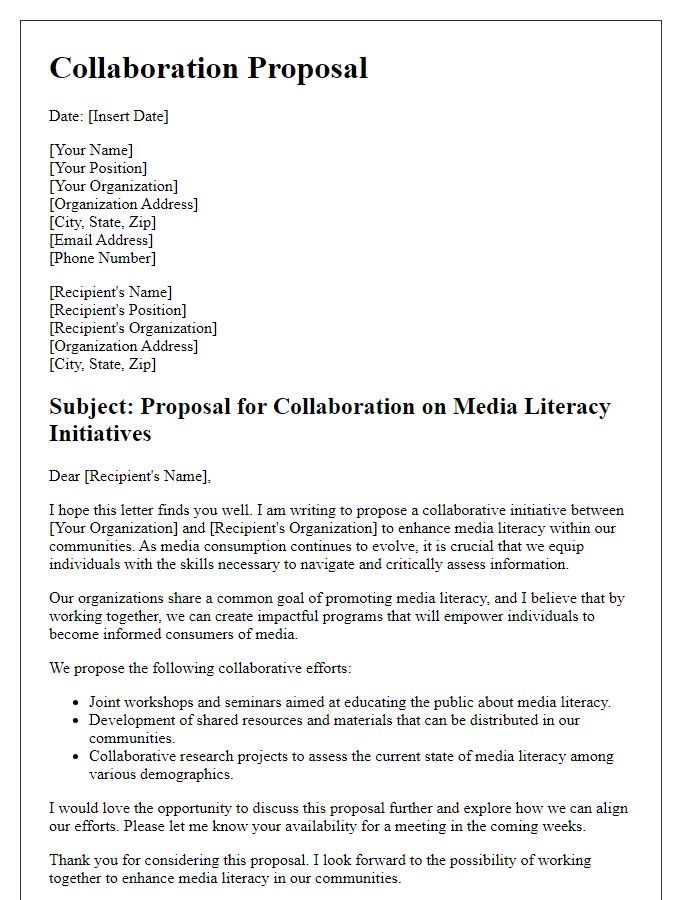

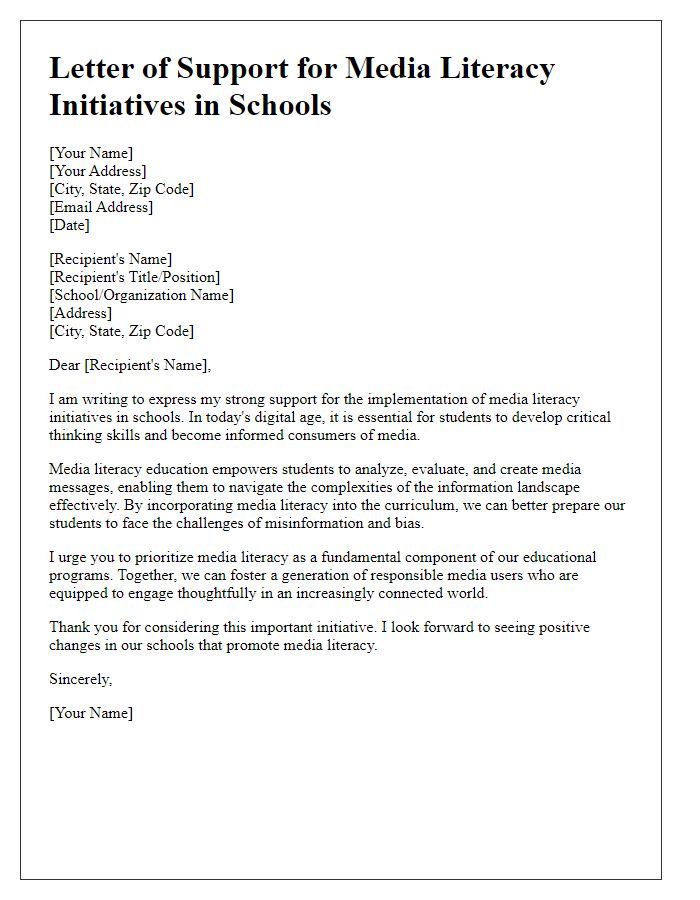
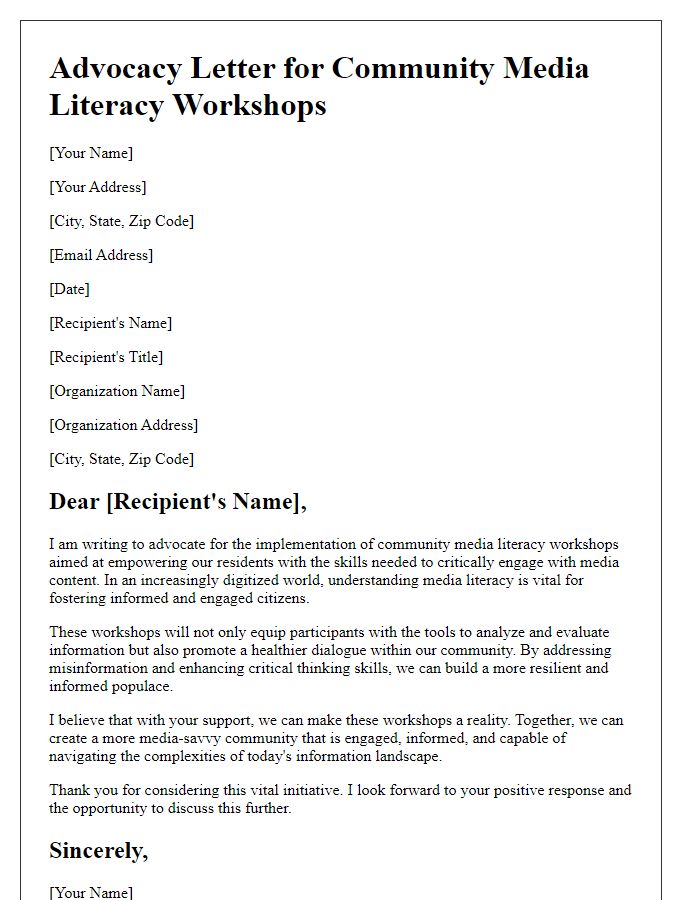
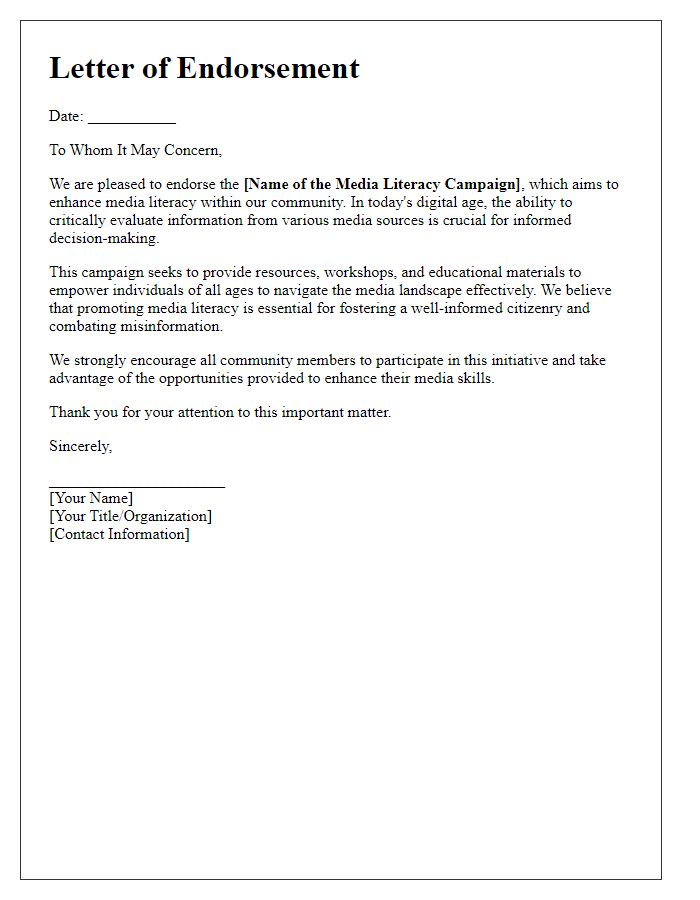
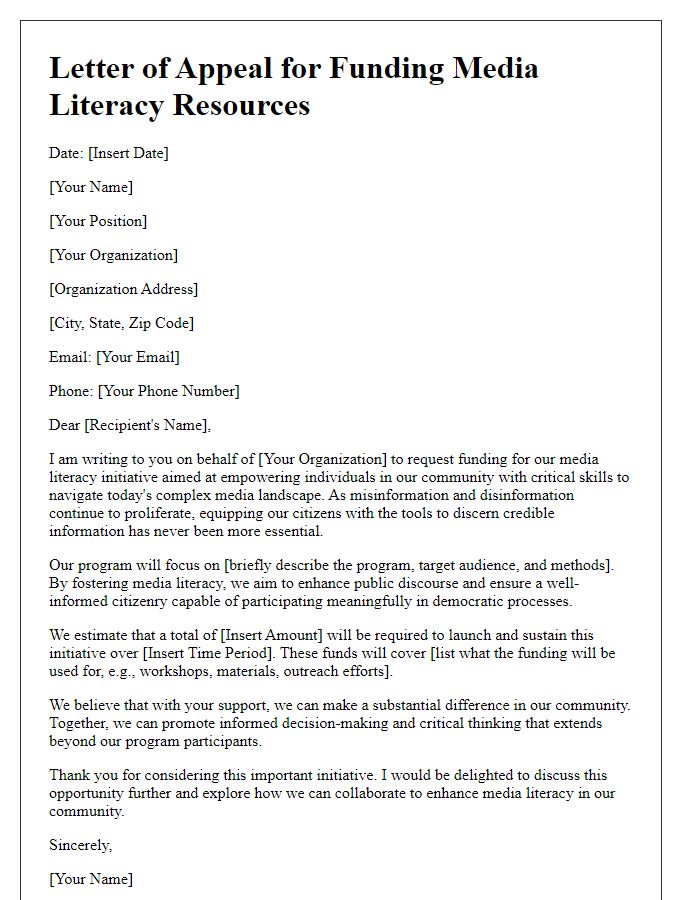
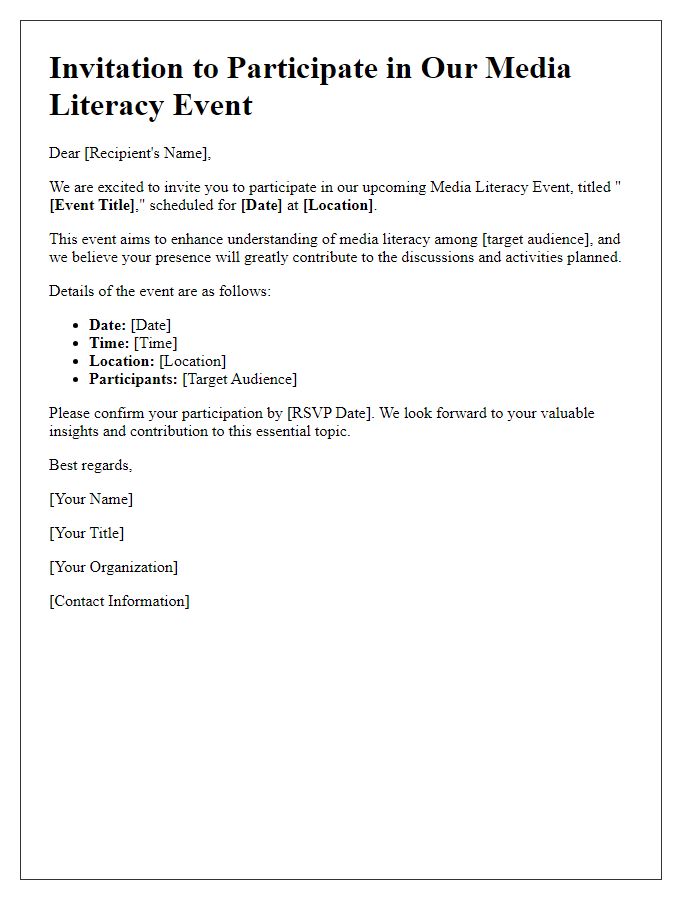
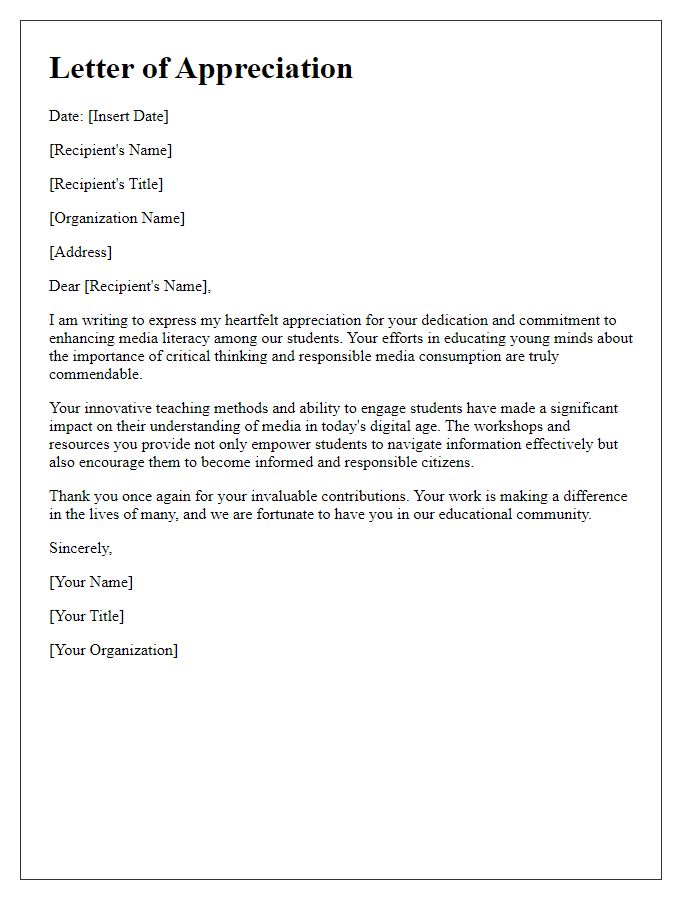
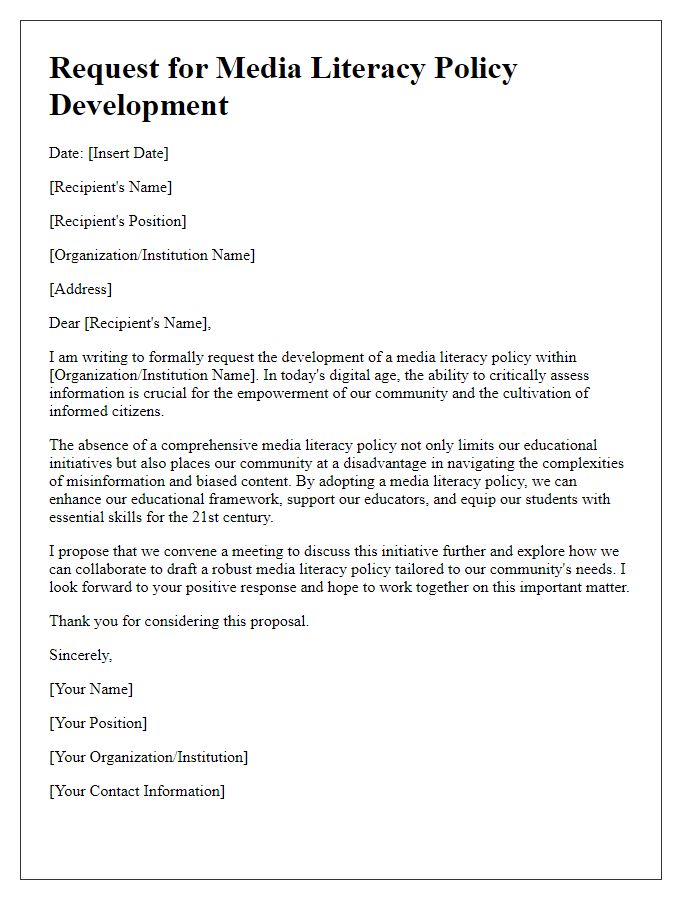
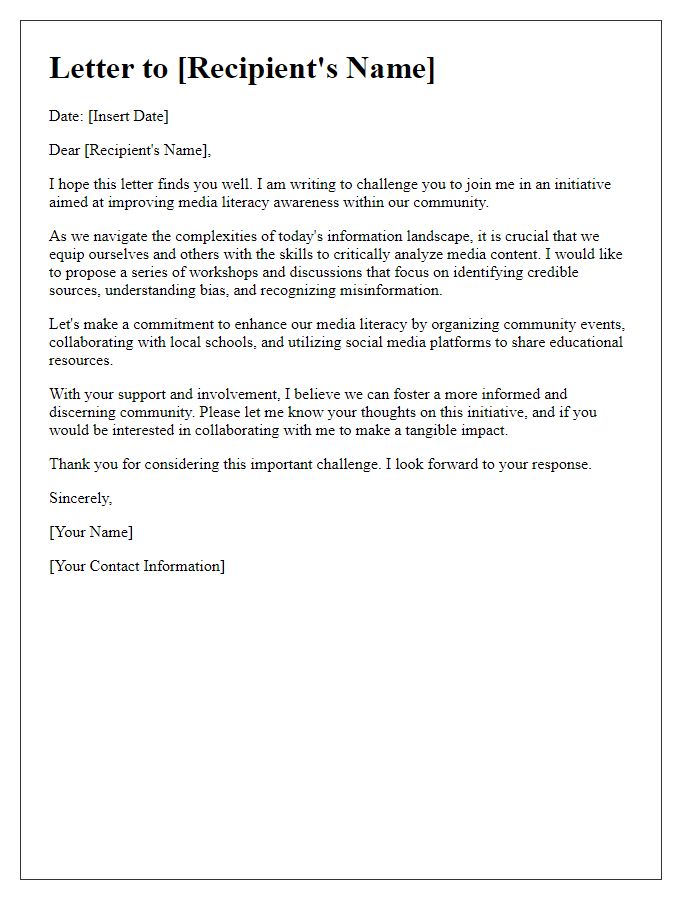


Comments